Between Stability and Chaos: Part One (of 6)—Fanny Brice, Mother
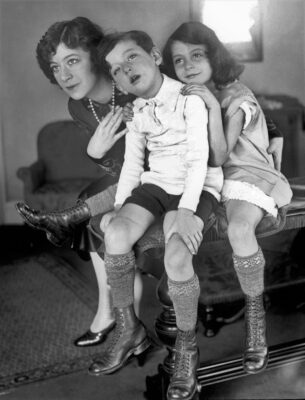
I was worried about Bill when he was young – he never used to talk.
Fanny Brice
Speaking of her son, William (Bill) Brice
Interview Recording, ca. 1950
Bill Brice was born into complicated circumstances. As a little boy, one might have wondered what he was making of his mother’s and father’s higgledy-piggledy world—and how he coped with it. How was it shaping him, what kind of path might he choose in life, and what sort of man might he become?
Brice’s Mother
Fanny Brice was indomitable. She had sung and clowned her way up from the street to the heights of Broadway by age 18, then became a Hollywood movie star (the first female star of a talking picture, only the second talkie ever made), and finally the star of her own national radio show, Baby Snooks. She became an international superstar admired around the world.
But she was also a mother, and the birth of her son was no different from the rest of her life: hectically impromptu.
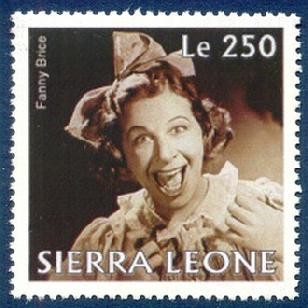
Pregnant with Brice during her 1921 Ziegfeld Follies’ tour of America, when her troop hit Chicago, she was suddenly unable to wriggle into her specially constructed girdle, made to hide her ‘condition’. Despite Fanny’s eagerly waiting audience, she could not go on. Ziegfeld was notified. His telegram was scathing:
YOU SHOULD HAVE MORE RESPECT FOR YOUR CONTRACT
THAN TO ALLOW YOURSELF TO GET IN A POSITION WHERE
YOU ARE FORCED TO QUIT ANY TIME YOU SEE FIT.
FLO
Fanny immediately left for New York and home.
The morning after her return, as she was eating breakfast in her robe, her doctor happened to knock. He had just treated a neighbor and hoped he might grab breakfast with Fanny; he was hungry. As they ate, he offered an exam “as long as I’m here”. “Sure”, said Fanny.
Just about to begin it, he exclaimed, “Holy Christ! Come on!” He pulled Fanny up, threw his coat over her nightgown, and rushed her toward her front door, “You’re going to the hospital,” he ordered. As he steered her out, she wobbled clumsily and exclaimed, “You’re crazy—what are you talking about?!” “For Christ’s sake! Your baby’s head is out! You’re in labor!”
William Brice entered his mother’s world upside down, without her awareness, as she casually sat at breakfast, then stumbled out of her brownstone in a mad rush for the hospital.
The Gifts and the Liabilities of his Mother’s World
For young Brice, the great boons of wealth, fame, privilege, and his mother’s circle of revered friends’, whose lofty careers, intellects, talents, and successes—the social soil that Brice’s budding roots grew from—came hand-in-hand with his experiences of emotional conflict, loneliness, confusion, and insecurity.
These darker emotions stemmed from his parents’ contradictory natures and lives, which affected Brice like wind shear, perpetually tossing him, to and fro, over a chasm between stability and chaos.
Although Fanny longed for children as an adult, since girlhood she had been driven to challenge the world, to make something big of herself and of her talent, which she did in spades. But to do so, she had to learn as a youngster to toughen up, to fend for herself, to be savvy—and fight her corner.
By the time Brice was born, her work schedule was in full swing and all-consuming: eight performances a week, including two matinees, either on Broadway or on tour in America or Europe. And when her show closed, rehearsals for her next began. She had to hire caregivers to look after her children and chose French governesses—“Mam’selle”, as Brice and his sister had to address them.
At best, one might see French governesses as a mixed blessing. On one hand, Brice spoke French before he learned English. On the other, the 1920s notion of good child-rearing still harkened back to the recent Victorian era with its unscientific and complicated attitudes towards children, which in part held that children were in the “savage” stage of their development towards “civilized” adulthood. Therefore, manners and discipline were all that mattered.
Even in late adulthood, Brice would occasionally recall, that while still in short pants, if he chose the incorrect fork or spoon at a meal, his governess ‘corrected’ him by whipping his bare legs, hard, with a length of hose underneath the table. His fear and intense dislike of these harsh, judgmental women remained ever-present and vivid.
As for his mother, she occasionally took Brice and his sister on her theatrical tours across America before they reached school age, along with their French governess.
On one European visit when Fanny sought a break from a crisis in her marriage, she asked a friend and actress Norma Talmadge to go with her to Paris. Fanny also took Brice, his sister, and their governess. Landing in France, Fanny left her children at the dock. While she and Talmage headed to Paris, Brice and his sister followed their governess to her parent’s home in the country, but they lodged with her parents’ neighbors—people and a world totally alien to Brice and his sister, who were so very far from Manhattan and all they knew
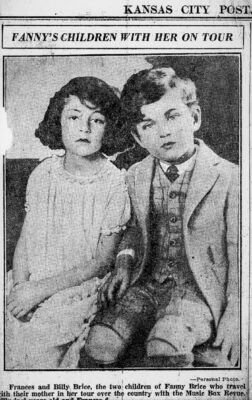
An Unusual Mother
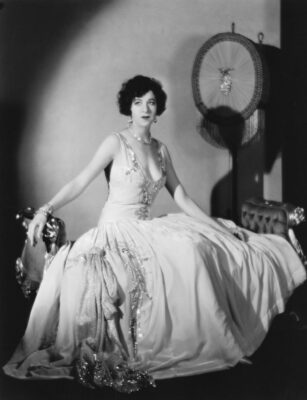
Nonetheless, Fanny was a caring mother—if in a most unusual way, one more suited to young adults than to preschool children:
Fanny on Honesty with one’s children
“I made up my mind to one thing: When I have children, they are going to know me as I am. I wanted them to like me as a person…I loved my mother, like we all love our mothers—because it’s our mother…We are educated to it. You have to love your mother. I didn’t want that.
“I said I would be just as honest as I could be. If I wanted to poop in front of them, I would poop…If they walked into the room and I was telling a dirty story…I didn’t stop. I think it’s the most awful thing when a mother or a father is telling a dirty story and a child walks in, and they say, ‘Sh-h-h – the kinder!’ Now the kid knows that you have stopped saying something―that has an effect on a child…”
Fanny on Toys for Birthdays
“I never bought my kids toys…I put the money―$25 a month―in the bank when each kid was born―every month. So, then when they got to the age of sixteen, seventeen, and they wanted to buy luxuries, they bought them with their own money. You see, when I knew I was going to have children, I had a fear of them being brought up in a theatrical world. I saw all these theatrical kids…They are horrible and fresh. And I didn’t want that to happen to mine.”
Fanny on Vulnerability and Crying in Front of Others
“I don’t want anybody to cry in front of me, and I don’t cry in front of anybody…I don’t know as any of my children has ever seen me cry…Once, I had a couple of drinks…and I was talking and I cried. I hated the person who saw me cry, because he had seen me cry…When you cry, you have self-pity, and I don’t like self-pity.”
Fanny Brice
Interview Recording, ca. 1950
Their formidable mother’s stern views left no room for compromise and were often experienced as abrasive and confusing by young Brice and his sister.
Brice’s Roots Struggled and Grew in the Clay and, Alternately, the Loamy Soils of his Mother’s World
And then there was the potential influence on Brice from Fanny’s many friends—who ranged from the impressively successful to the colorfully, if dangerously, eccentric.
The more ‘stable’ personalities included elites like Frank Murphy, an FDR appointed Supreme Court Justice; and FDR himself. Averell Harriman, bright, wise, and charming railroad multi-millionaire, who became President Truman’s Secretary of Commerce and then the Governor of New York. The ‘stables’ also included giants of American finance and industry: Bernard Baruch and Charles M. Schwab, the steel magnate.
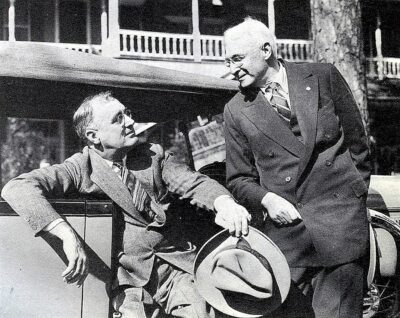
Then there were those who ran the business: Broadway producers David Belasco, Florenz Ziegfeld, the Schubert brothers, and Sam Harris.
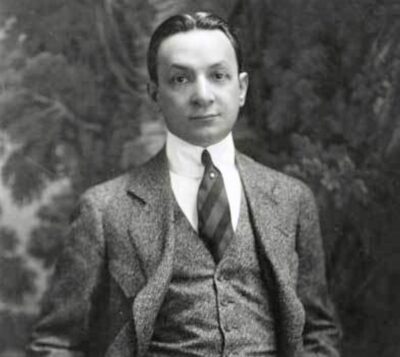
Creatives, some very eccentric, who included: songwriters and musicians Irving Berlin, Cole Porter, George and Ira Gershwin, Harold Arlen, and Oscar Levant. Writers such as Clifford Odets, Dashiell Hammett, and Ben Hecht. Comedians and performers like humorist Will Rogers, Bert Williams, W.C. Fields, Eddie Cantor, the Marx Brothers, Gypsy Rose Lee, Bob Hope, and Bea Lillie. Actors: Tracy and Hepburn, Clark Gable, Claudette Colbert, Laurence Olivier, John Barrymore, and Judy Garland.
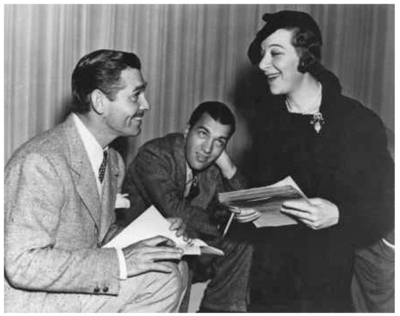
At the extremes, were mobster Arnold Rothstein, best remembered for fixing the 1919 World Series, and the Prince of Wales.
After her performances and late dinners, Fanny would return home around 1 am and often held court from her bed as celebrated friends gathered around, drinking champagne, telling stories, singing, and laughing into the early hours. Brice recalled one night when John Barrymore and another actor flawlessly and rivetingly performed Shakespeare—making it all up, spontaneously, as they went along.
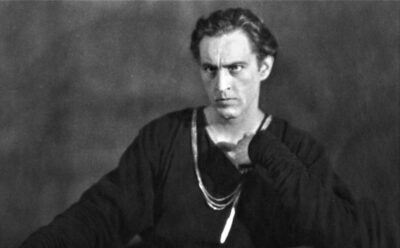
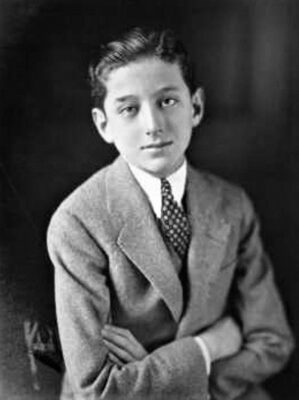
What did young Brice make of this crazy quilt of personalities, which made up the fabric of his mother’s life?
Did they and their remarkable lives seem normal to him? Did anything seem normal to the boy?
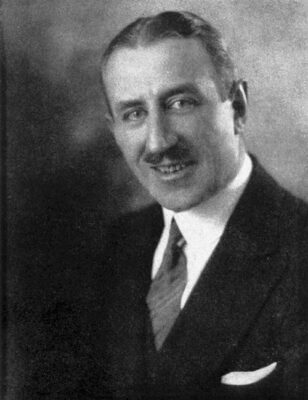
And then there was young Brice’s father: Julius ‘Nicky’ Arnstein—a posh, well-spoken professional gambler and confidence man, who became the FBI’s “Most Wanted Man in North America” in 1920.
* * *
To be Continued – See our Next Blog: Between Stability and Chaos: Part 2 (of 5)—Julius ‘Nicky” Arnstein, Twice Convicted Felon and Father